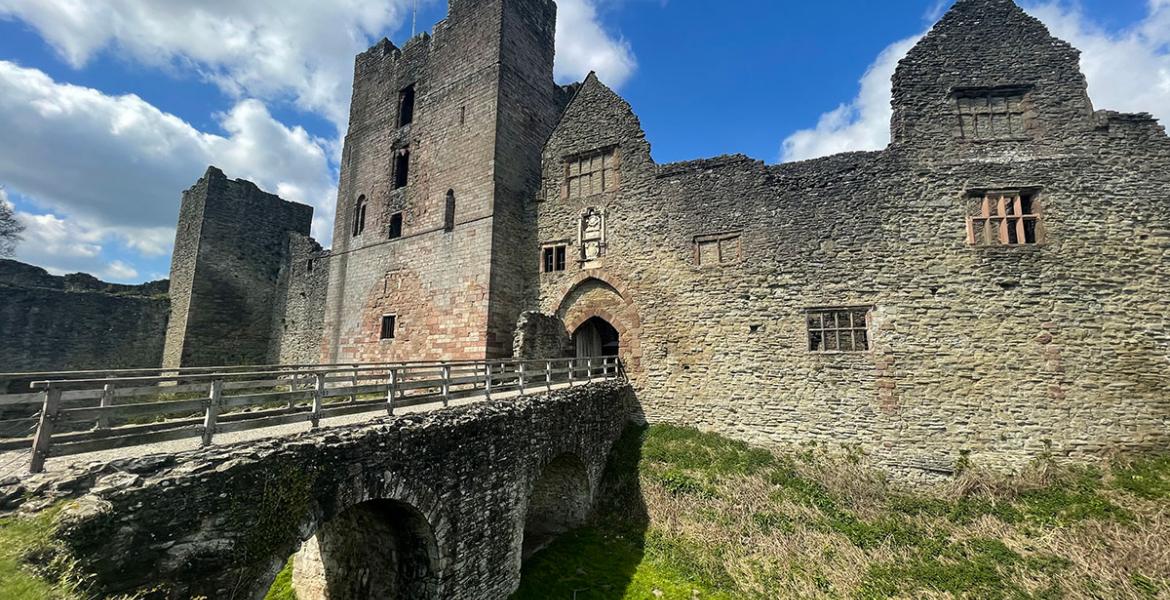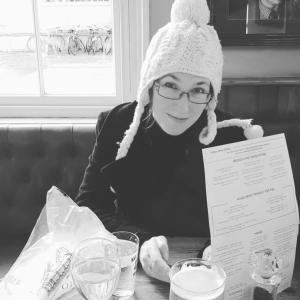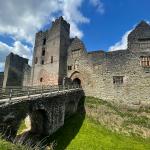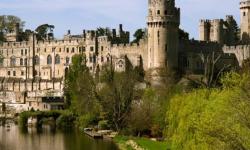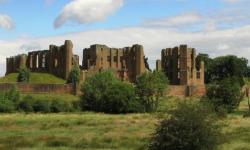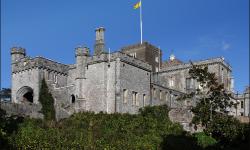Ludlow Castle, Shropshire
Ludlow Castle, snuggled beside a bend in the River Teme as it winds its ways through south Shropshire, is at the western edge of the pretty town of Ludlow. Although this small market town that was planned and built around the castle seems sleepy now, both it and the castle have been witness to considerable violence, death, and mayhem during their thousand-year history. First built as an important defensive site during the Norman conquest of England, the castle has witnessed some of the most decisive events in English history, and played home to some of England's biggest personalities. Not only did it factor in the success of the Norman Conquest, but it was besieged by King Stephen during the AnarchyA civil war in England between 1135 and 1153. It can also to refer to the turbulent political landscape of late Mughal India. and by Simon de Montfort during the Second Barons' WarA civil war, lasting from 1264 until 1267, between Henry III and some of his barons led by Simon de Montfort. Sparked by issues over crown finance and government, it it became a struggle between the power of an absolutist king and the rights of his barons.. It was owned by Roger Mortimer, co-deposer of Edward II, and Richard duke of York (of Wars of the RosesA series of conflicts, during the second half of the fifteenth century, between two branches of the Plantagenet line: York and Lancaster. Over the course of 30 years the crown passed through several hands: Henry VI, Edward VI, Edward V, Richard III, and Henry Tudor. Most historians date the end of the Wars to Henry VII's victory at the Battle of Bosworth Field, although it can be argued that they actually finally finished during the sixteenth century. fame) and his son Edward IV. Edward IV's son, also Edward, lived there until he made his fateful journey towards London as Edward V, before eventually dying as one of the Princes in the Tower. In 1502 Arthur Tudor, heir to the throne, and his new wife, Catherine of Aragon, fell ill there. When Arthur died, his brother Henry became heir and eventually king, taking Catherine as his first wife. Henry VIII then made Ludlow the de factoA Latin phrase meaning 'in fact', but not necessarily in law. capital of Wales, and the castle remained in royalist hands until it surrendered - thus saving it from slighting - to parliamentariansPeople supporting parliament in the civil wars; or members of parliament, particularly those who are knowledgeable about politics. in 1646, during the First English Civil War. It fell into disuse and disrepair from 1689, but was eventually bought by the earl of Powis in 1811.
As such, the castle is steeped in history. Layer upon layer of building work - and decay - represent almost every century of its existence, from its rare twelfth-century chapel designed along Templar lines by the crusader Gilbert de Lacy, to the amazingly sympathetic Tudor renovations of Rowland Lee and Sir Henry Sidney. Consequently, the castle should be a wonder to explore, and the grounds, rooms and towers are extensive enough to keep visitors wandering around for at least an hour. Sadly, given the importance of the castle as a building and as a part of history, there is very little information available - apart from a few information boards - to get a full understanding of the place. The booklet that can be purchased at the entrance is not worth the cost, despite its low price, and is better suited to a four-year-old than it would be to most visitors. No audioguide was offered, which we assumed to be a sign of the times, but a brief glance at Tripadvisor suggests that none are available even when the castle is operating under normal conditions. We were therefore reduced to looking up facts about the castle on the internet and using our quasi-informed imaginations to attempt to complete the picture. Given the opportunities available for tales about the castle's former occupants, the battles and sieges, even ghost stories, this seems to be a considerable oversight.
Nevertheless, the castle is definitely worth a visit. On a fine day, or at a time when people are generally starved of accessible heritage, it is lovely to amble round the grounds and ruins, and the cost - £20 for a family - is relatively low. There is plenty of room for children to play or run around, there are picnic tables for those wishing to enjoy a packed lunch while soaking up the atmosphere, or there is a coffee shop selling truly excellent cake for those not wanting to be bothered. In a normal year there are often events happening within the grounds and, with a return to normality, these will be restarting later in 2021. One to watch out for is the Ludlow Food Festival - with a number of Michelin-mentioned eateries in the area this shouldn't be missed. However, the castle is also a venue for private events, so it is worthwhile checking before setting off whether it is open on any particular day. There is also a small shop selling the usual fare, which can also double-up as somewhere to hide from the rain when necessary. For exposure to the elements is one point to consider: when it rains, there are few refuges. And, as with most sites of this nature, the best bits are not accessible to those unable to move freely, or to those with pushchairs. These qualifiers aside, there is every reason to visit the castle, particularly when combining it with a stroll through the beautiful town and surrounding countryside. Then, if the heavens open, you can always dry off in one of the many wonderful pubs in the area.
- Log in to post comments


